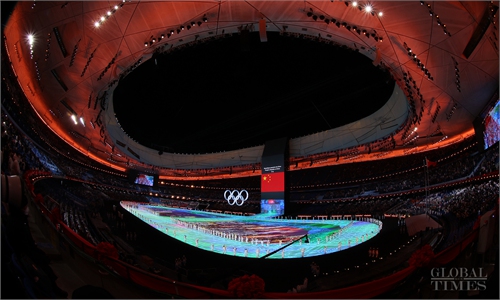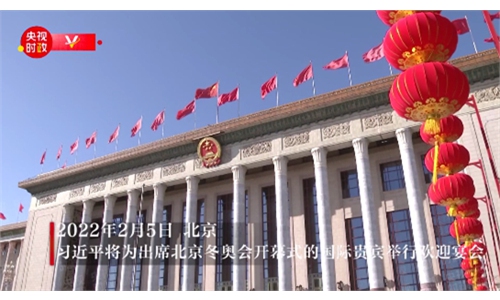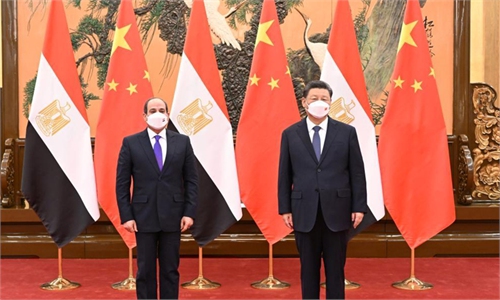Xi meets with presidents from Central Asia, as China provides new model for promoting stability, equality
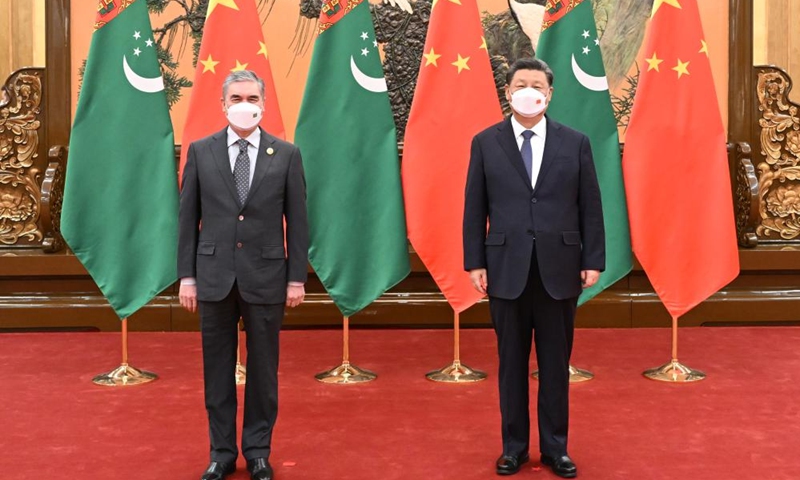
Chinese President Xi Jinping meets with Turkmen President Gurbanguly Berdymukhamedov at the Great Hall of the People in Beijing, capital of China, Feb. 5, 2022. (Xinhua)
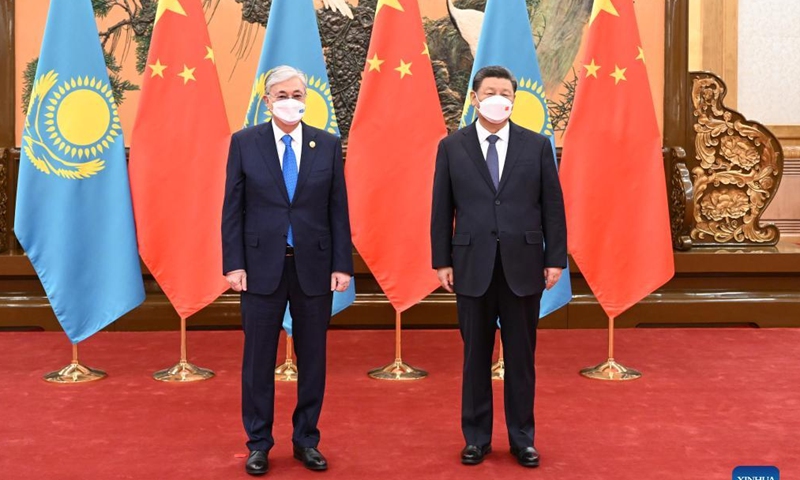
Chinese President Xi Jinping meets with Kazakh President Kassym-Jomart Tokayev at the Great Hall of the People in Beijing, capital of China, Feb. 5, 2022. (Xinhua)
Chinese President Xi Jinping met with presidents of Kazakhstan, Turkmenistan, Uzbekistan, and Tajikistan, respectively, on Saturday, who attended the opening ceremony of the Beijing 2022 Winter Olympic Games the previous day. The statements issued after the meetings indicated that the China-Central Asia cooperation and relations will be elevated to a new level.During his meeting with Turkmen President Gurbanguly Berdymukhamedov, Xi said that China is ready to work with Turkmenistan to focus on the future and long-term cooperation, expand the volume and scale of bilateral natural gas cooperation, expand cooperation across the industrial chain and take natural gas cooperation to a new level. Berdymukhamedov also noted that Turkmenistan is ready to work with China to tap its potential, speed up cooperation on the construction of the Line D, part of the Central Asia-China Gas Pipeline, and other important projects so as to elevate China-Turkmenistan relations to a higher level.
President Xi met with Kazakh President Kassym-Jomart Tokayev the same day. Xi stressed that China-Kazakhstan relations have gone beyond a bilateral scope and are of great significance to regional and world peace and stability, and that China firmly supports Kazakhstan in safeguarding independence, sovereignty, and territorial integrity. China will remain committed to deepening cooperation and jointly ushering in another three golden decades of China-Kazakhstan relations, Xi noted.
Tokayev congratulated China on successfully hosting the Beijing 2022 Winter Olympic Games and expressed gratitude for China's firm support of Kazakhstan's efforts to oppose external interference. Kazakhstan will provide firm support on issues concerning China's core interests as always and will not be provoked or disturbed by external forces. Kazakhstan looks forward to President Xi's visit as soon as possible, Tokayev said.
When meeting with Uzbek President Shavkat Mirziyoyev, Xi said China is willing to help Uzbekistan build a modern industrial system, speed up the feasibility study for a China-Kirgizstan-Uzbekistan Railway and carry out cooperation for poverty alleviation. Mirziyoyev said China has become an example of a country committed to advanced, democratic and modern development, and that Uzbekistan thanks China for its valuable assistance at a difficult moment for the country during the pandemic, noting that Uzbekistan will firmly stick to the one-China policy.
In his meeting with Tajik President Emomali Rahmon, Xi pointed out that Tajikistan was the first country to sign the Belt and Road Initiative with China and the two sides took the lead in establishing a development community. China is ready to import more high-quality agricultural products from Tajikistan and strengthen counter-terrorism cooperation with Central Asian nations. Rahmon said that further deepening the friendly and cooperative relations between China and Tajikistan was, is and will be the top diplomatic priority of Tajikistan.
The meeting again demonstrated the solidarity between China and Central Asian countries after President Xi chaired a summit on January 25 via video link to commemorate the 30th anniversary of the establishment of diplomatic relations between China and five Central Asian countries.
Experts believed that the concentrated meetings with Central Asian countries' representatives at the Beijing 2022 Winter Olympics reflect China's determination to place Central Asia in its strategic direction of stability. And it also reflects that the strategic cooperation between Central Asian countries and China has reached a new level.
Zhu Yongbiao, director of the Center for Afghanistan Studies at Lanzhou University, told the Global Times on Saturday that China's cooperation with Central Asia is based on full respect for the independence and autonomy of Central Asian countries, and China regards them as equal partners.
Zhu also pointed out that under the framework of the unprecedented China-Russia ties, it also provided a model for maintaining stability in international society, especially for promoting cooperation and equality across Central Asia. "But it was under the premise that it should be in line with the interests of Central Asian countries." Zhu stressed.
In early January, Kazakhstan became a global newsmaker after organized groups of rebels attacked government buildings, police stations, and even the Kazakh National Security Committee's Almaty branch building in broad daylight. At the request of President Tokayev, Russia extended timely assistance to Kazakhstan to quell the turmoil. And China expressed its firm support to Russia and Kazakhstan in cracking down on rioters, which Chinese experts on Central Asia affairs believed was good practice for China and Russia to consolidate the stability of the whole region.
"In fact, the regional cooperation between China and Russia has created a new mode of cooperation in a new era, which respects the will and autonomy of the third party as well as their status. It also guaranteed the coordination among the great powers." Zhu noted.
